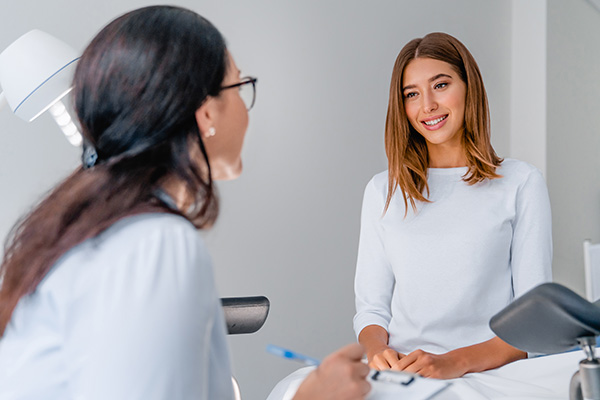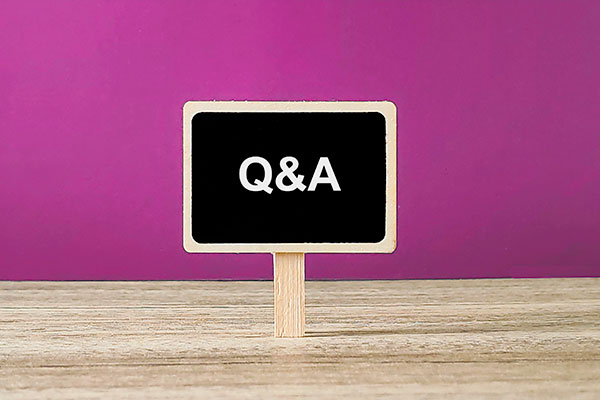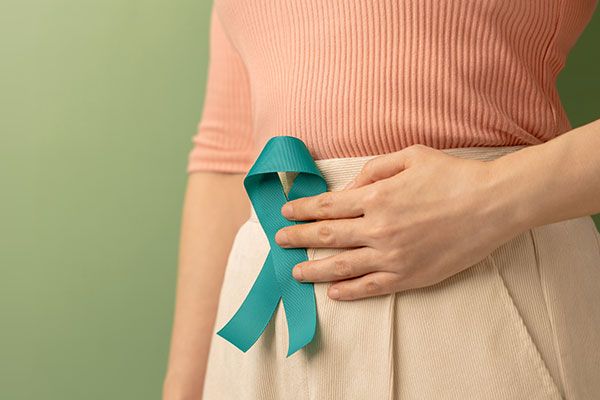Most women experience occasional irregularities in their menstrual cycles. A period that arrives early or late, flows a bit heavier than usual, or skips a month entirely doesn’t always signal a problem. But distinguishing between normal variation and abnormal uterine bleeding that warrants medical evaluation can be challenging, leaving many women uncertain whether their experiences require professional attention.
Abnormal uterine bleeding affects millions of women and represents one of the most common reasons women seek gynecological care. Yet many suffer for months or even years before seeking help, either because they assume their symptoms are normal or because they feel embarrassed discussing bleeding patterns with their healthcare provider.
Understanding what constitutes abnormal bleeding, what might cause it, and when to seek evaluation empowers you to advocate for your health and access treatment that can dramatically improve your quality of life.
What Actually Qualifies as Abnormal Bleeding
Before you can recognize abnormal bleeding, you need to understand what’s considered normal—though “normal” encompasses considerable variation.
Typical Menstrual Patterns: A regular menstrual cycle ranges from 21 to 35 days from the first day of one period to the first day of the next. Bleeding typically lasts 2-7 days, with flow requiring 3-6 pad or tampon changes daily during the heaviest days. Consistency matters more than matching these exact numbers—your personal normal is what your body typically does.
Bleeding That’s Too Heavy: Heavy menstrual bleeding, called menorrhagia, means soaking through pads or tampons every hour for several consecutive hours, needing to change protection during the night, passing blood clots larger than a quarter, or bleeding lasting longer than seven days. This level of blood loss can cause anemia and significantly disrupts daily life.
Bleeding That’s Too Frequent: If you’re having periods more often than every 21 days, this frequent bleeding pattern qualifies as abnormal. Your body isn’t getting adequate time between cycles for your uterine lining to properly build up and shed.
Bleeding Between Periods: Spotting or bleeding between menstrual periods—especially if it happens regularly or is more than just light spotting—warrants evaluation. This intermenstrual bleeding might occur mid-cycle, after intercourse, or randomly throughout your cycle.
Bleeding After Menopause: Any vaginal bleeding after you’ve gone 12 consecutive months without a period requires immediate medical attention. Postmenopausal bleeding isn’t normal and needs evaluation to rule out serious conditions including cancer.
Prolonged Spotting: Light bleeding or spotting that continues for weeks rather than resolving into a normal period or stopping altogether indicates something is disrupting your normal menstrual patterns.
Common Causes of Abnormal Uterine Bleeding
Abnormal bleeding stems from various causes, ranging from benign hormonal imbalances to structural problems requiring treatment.
Hormonal Imbalances: Your menstrual cycle relies on precise hormonal coordination between estrogen and progesterone. When this balance is disrupted—during perimenopause, due to polycystic ovary syndrome, thyroid disorders, or stress—bleeding patterns become irregular. Hormonal imbalances represent one of the most common causes of abnormal bleeding, especially in younger women and those approaching menopause.
Uterine Fibroids: These benign muscular tumors growing in or on the uterine wall affect up to 80% of women by age 50. Fibroids can cause heavy bleeding, prolonged periods, and sometimes bleeding between periods. Size and location determine whether fibroids cause symptoms—some women have multiple large fibroids without any problems, while others experience significant bleeding from smaller growths.
Endometrial Polyps: These soft, finger-like growths projecting into the uterine cavity from the endometrial lining can cause irregular bleeding, spotting between periods, or unusually heavy menstruation. Polyps are typically benign but can interfere with fertility and cause bothersome symptoms.
Adenomyosis: This condition occurs when endometrial tissue grows into the muscular uterine wall. Adenomyosis causes heavy, painful periods and can enlarge the uterus. Many women with adenomyosis have suffered for years before receiving accurate diagnosis, often being told their symptoms are normal or psychosomatic.
Endometrial Hyperplasia: Excessive growth of the uterine lining, often due to prolonged estrogen exposure without adequate progesterone, creates endometrial hyperplasia. This condition causes irregular or heavy bleeding and, in some cases, represents a precancerous condition requiring treatment to prevent progression to endometrial cancer.
Blood Clotting Disorders: Conditions like von Willebrand disease affect your blood’s ability to clot properly, leading to heavy menstrual bleeding. These disorders often go undiagnosed for years because women assume heavy periods are normal, not realizing their bleeding is actually caused by an underlying clotting problem.
When to Contact Your Healthcare Provider
Determining when abnormal bleeding requires medical attention versus when you can safely watch and wait depends on several factors.
Seek Immediate Care For: Bleeding heavy enough to soak through a pad or tampon every hour for more than two hours, bleeding accompanied by severe pain or dizziness, passing very large clots, or bleeding during pregnancy all require urgent medical evaluation. These symptoms might indicate emergencies requiring immediate treatment.
Schedule an Appointment Soon If: Your periods have become significantly heavier than your personal normal, you’re bleeding between periods regularly, periods last longer than seven days, you experience bleeding after intercourse, or you develop new bleeding patterns after age 45. These changes warrant relatively prompt evaluation even if they’re not emergencies.
Don’t Delay If: You’ve been managing heavy or irregular bleeding for months or years, assuming it’s just how your body works. Long-standing abnormal bleeding deserves evaluation and treatment. You don’t have to live with bleeding patterns that interfere with your life, cause anemia, or restrict your activities.
Always Investigate: Postmenopausal bleeding, no matter how light, requires immediate medical evaluation. Any vaginal bleeding after menopause needs assessment to rule out serious conditions.
Diagnostic Approaches to Abnormal Bleeding
Understanding what to expect during evaluation helps reduce anxiety about seeking care for bleeding concerns.
Detailed History and Physical Exam: Your provider will ask specific questions about your bleeding patterns, including how often you change protection, clot size, cycle length, and how bleeding impacts your daily life. A pelvic exam assesses your reproductive organs for abnormalities. This information guides further testing.
Laboratory Testing: Blood tests check for anemia from chronic blood loss, evaluate thyroid function, assess hormone levels, and screen for clotting disorders. These tests help identify systemic causes of abnormal bleeding versus problems originating in the uterus itself.
Ultrasound Imaging: Transvaginal ultrasound provides detailed images of your uterus and ovaries, identifying fibroids, polyps, abnormal thickening of the uterine lining, or ovarian abnormalities. Ultrasound is non-invasive and offers valuable diagnostic information.
Endometrial Biopsy: When evaluating abnormal bleeding, especially in women over 45 or with risk factors for endometrial cancer, sampling the uterine lining helps rule out precancerous changes or cancer. This office procedure takes only minutes and provides crucial diagnostic information.
Hysteroscopy: This procedure uses a thin, lighted scope inserted through the cervix to directly visualize inside the uterine cavity. Hysteroscopy identifies and sometimes treats polyps, fibroids, or other structural problems causing abnormal bleeding. It offers both diagnostic and therapeutic capabilities.
Treatment Options That Restore Quality of Life
Once the cause of abnormal bleeding is identified, numerous treatment options can effectively manage or eliminate problematic bleeding.
Hormonal Treatments: Birth control pills, hormonal IUDs, progesterone therapy, or other hormonal approaches regulate menstrual cycles and reduce bleeding in many women. These medications work particularly well for hormone-related bleeding causes and offer the advantage of being non-invasive first-line treatments.
Non-Hormonal Medications: For women who can’t or prefer not to use hormones, medications like tranexamic acid reduce menstrual blood loss by up to 50% without affecting your cycle. NSAIDs also decrease bleeding and relieve associated cramping.
Minimally Invasive Procedures: Endometrial ablation destroys the uterine lining, dramatically reducing or eliminating menstrual bleeding. This outpatient procedure works well for women who have completed childbearing and want to avoid hysterectomy. Ablation isn’t appropriate for everyone but offers excellent results for properly selected candidates.
Surgical Removal of Fibroids or Polyps: Hysteroscopic removal of polyps or certain fibroids eliminates bleeding sources while preserving the uterus. These targeted procedures address the specific cause without affecting the rest of your reproductive anatomy.
Hysterectomy: Removing the uterus permanently eliminates menstrual bleeding and is sometimes the best option for severe adenomyosis, large fibroids causing significant symptoms, or when other treatments have failed. Modern surgical techniques including minimally invasive approaches make hysterectomy safer and recovery faster than ever before.
The Impact of Untreated Abnormal Bleeding
Understanding potential consequences of ignoring abnormal bleeding emphasizes why evaluation matters.
Anemia and Its Effects: Chronic heavy bleeding depletes iron stores, causing anemia. You might experience fatigue, weakness, dizziness, shortness of breath, and difficulty concentrating. Severe anemia can affect your heart and overall health, yet develops so gradually you might not realize how poorly you’re feeling until treatment restores normal energy levels.
Quality of Life Limitations: Heavy or unpredictable bleeding restricts your activities, forcing you to plan your life around your period. You might avoid travel, social events, exercise, or intimacy due to bleeding concerns. These limitations significantly impact your emotional wellbeing and life satisfaction.
Fertility Implications: Some causes of abnormal bleeding—including polyps, fibroids, and hormonal imbalances—can interfere with fertility. If you’re planning future pregnancies, addressing bleeding issues now may improve your chances of conceiving.
Progression of Underlying Conditions: Certain causes of abnormal bleeding, particularly endometrial hyperplasia, can progress to more serious conditions if left untreated. Early intervention prevents advancement to stages requiring more aggressive treatment.
Take Control of Your Bleeding in Cumming
You don’t have to accept disruptive, heavy, or irregular bleeding as your reality. Effective treatments exist that can dramatically improve your quality of life, restore your energy, and give you back control over your daily activities.
The experienced providers at North Pointe OB/GYN in Cumming understand that abnormal bleeding affects every aspect of your life. They offer comprehensive evaluation, accurate diagnosis, and personalized treatment plans that address your specific situation and goals.
Stop suffering in silence or assuming your bleeding is just something you have to tolerate. Contact North Pointe OB/GYN today to schedule an evaluation and discover how treating abnormal uterine bleeding can transform your daily life and restore your wellbeing.












